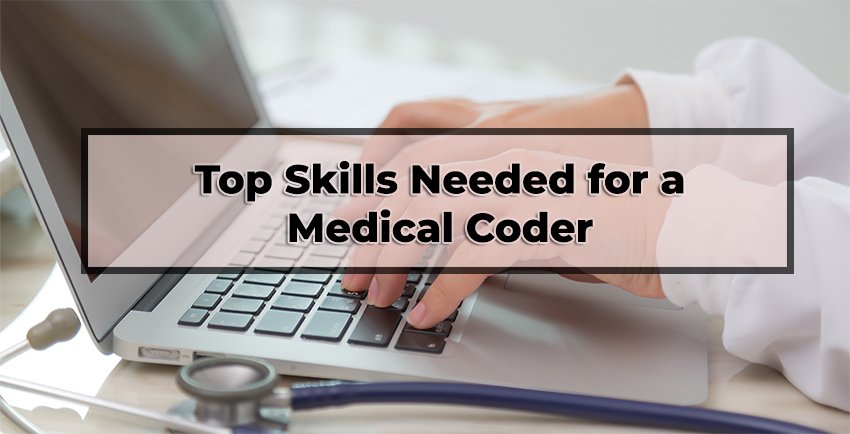Top Skills Needed for a Medical Coder
Medical coding is a specialized field that requires a combination of technical knowledge, analytical abilities, and attention to detail. A medical coder's primary responsibility is to translate healthcare procedures, diagnoses, and treatments into standardized codes, which are essential for billing, reimbursement, and maintaining medical records. To excel in this field, medical coders must possess a variety of skills. Below are the top skills needed for a successful career in medical coding.

Attention to Detail
Medical coders must be able to carefully review patient records, diagnoses, and treatments to assign the correct codes. Any mistake in coding can lead to claim denials, incorrect billing, or even legal issues. Coders must ensure that they are precise in every aspect of their work, especially when dealing with large amounts of data and complex medical terminology.
- Why it's important: Accuracy is crucial in medical coding. Even minor errors can have significant financial and legal consequences for healthcare providers.
Knowledge of Medical Terminology
Understanding medical terminology is one of the foundational skills for medical coders. They must be familiar with a wide range of medical terms, including anatomy, diseases, treatments, and procedures. This knowledge helps coders accurately interpret medical records and assign the correct codes based on the diagnoses and services provided.
- Why it's important: Without a solid understanding of medical terms, coders would struggle to interpret clinical documentation, leading to coding errors and claim denials.
Familiarity with Coding Systems
Medical coders must be proficient in using various standardized coding systems. The most common coding systems include:
- ICD-10: Used for coding diagnoses and conditions.
- CPT (Current Procedural Terminology): Used for coding medical procedures and services.
- HCPCS (Healthcare Common Procedure Coding System): Used for coding services, supplies, and equipment related to Medicare and Medicaid.
Why it's important: Coding systems are the foundation of medical coding. Coders need to understand how to apply the correct codes for different medical services and diagnoses to ensure accurate billing and compliance.
Analytical and Critical Thinking
Medical coders must be able to analyze and interpret clinical documentation, identifying relevant information for accurate coding. This requires strong analytical and critical thinking skills to discern which codes best represent the patient's diagnosis and the procedures performed.
- Why it's important: Coders need to navigate through complex medical documentation and make decisions based on the information provided. Analytical thinking helps them identify patterns, spot inconsistencies, and apply the correct codes.
Communication Skills
Medical coders frequently communicate with healthcare providers, billing teams, and insurance companies. When documentation is unclear or insufficient, coders may need to query physicians or other healthcare professionals to clarify details and ensure the correct codes are applied.
- Why it's important: Effective communication ensures that coders can collaborate with healthcare teams to clarify documentation, prevent errors, and ensure accurate billing.
Knowledge of Healthcare Laws and Regulations
Medical coders must stay informed about healthcare regulations and payer-specific requirements, including HIPAA (Health Insurance Portability and Accountability Act), Medicare, and Medicaid guidelines. Compliance with these regulations is critical to ensuring that patient data is protected and that coding practices are legally sound.
- Why it's important: Coders need to comply with various regulatory requirements to avoid legal issues, audits, and penalties related to incorrect coding or billing practices.
Computer and Software Proficiency
Most medical coders use specialized coding software, Electronic Health Records (EHRs), and billing systems to perform their work. Coders need to be comfortable using these technologies to input codes, review patient records, and submit claims electronically.
- Why it's important: Proficiency with coding software and healthcare technology is essential for efficiency and accuracy in modern coding environments.
Time Management and Organizational Skills
Medical coders often work with large volumes of patient records and coding tasks. They must be able to prioritize their workload, meet deadlines, and manage their time effectively to ensure that coding and billing processes are completed accurately and on time.
- Why it's important: Effective time management and organization prevent backlogs, reduce errors, and ensure that claims are submitted promptly for reimbursement.
Problem-Solving Skills
Medical coding is not always straightforward, and coders may encounter complex cases or incomplete documentation that requires problem-solving skills. Coders need to be able to find solutions to coding issues, identify missing information, and resolve discrepancies between clinical documentation and coding guidelines.
- Why it's important: Coders must be able to navigate challenges and find accurate solutions to ensure compliance, proper reimbursement, and the integrity of medical records.
Medical coding requires a diverse set of skills, from attention to detail and knowledge of medical terminology to proficiency with coding systems and software. Coders who possess these skills are well-positioned to succeed in this challenging yet rewarding field. By continually improving their abilities and staying up-to-date with industry developments, medical coders can ensure that they provide accurate and efficient coding services, contributing to the smooth functioning of the healthcare revenue cycle.

